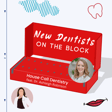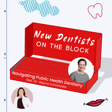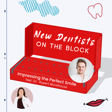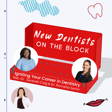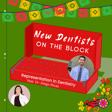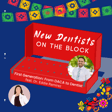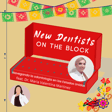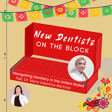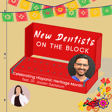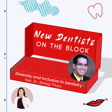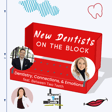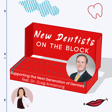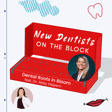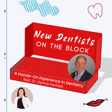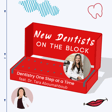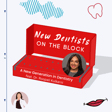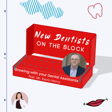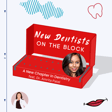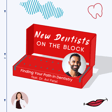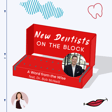
New Beginnings in Dentistry w/ Dr. Sampada Deshpande
Welcome back to Season 2 of New Dentists on the Block!
In this episode, Dr. Sampada Deshpande shares her journey as a foreign-trained dentist and her decision to pursue a general practice residency (GPR) to specialize in treating patients with special healthcare needs. She discusses her unique model of portable dentistry, where she brings dental care to seniors and individuals with disabilities in their own homes or assisted living centers. Sampada also talks about her role as a product manager for Samsomile and her dedication to helping dental professionals streamline insurance verification processes. She emphasizes the importance of thinking outside the box and finding unique ways to serve patients in the dental profession.
About The Guest:
Sampada Deshpande is a foreign-trained dentist who completed her dental school in India before pursuing her DDS at the University of Washington. She has a passion for treating patients with special healthcare needs and has dedicated her career to providing dental care to seniors and individuals with disabilities. Sampada offers portable dentistry, where she brings her dental equipment to assisted living centers and patients' homes to provide comfortable and convenient dental care. She also works as a product manager for Samsung Smile, an automated insurance verification solution.
Key Takeaways
- Sampada Deshpande pursued a general practice residency (GPR) to specialize in treating patients with special healthcare needs.
- Portable dentistry allows Sampada to provide dental care to seniors and individuals with disabilities in their own homes or assisted living centers.
- Sampada's role as a product manager for Samsung Smile involves streamlining insurance verification processes for dental professionals.
- Thinking outside the box and finding unique ways to serve patients is crucial in the dental profession.
Connect with Sampada Deshpande on IG: @dr.desphande
Connect with New Dentist Business Club: @newdentistbusinessclub
Learn more about Samsosmile: @samsosmile
Connect with New Dentists on the Block: @newdentistsontheblock
Connect with Tanya Sue Maestas: @tsmaestas.dds
Full video on Youtube
Swing by Peyruis | https://soundcloud.com/peyruis Music promoted by https://www.free-stock-music.com Creative Commons / Attribution 3.0 Unported License (CC BY 3.0) https://creativecommons.org/licenses/by/3.0/deed.en_US
